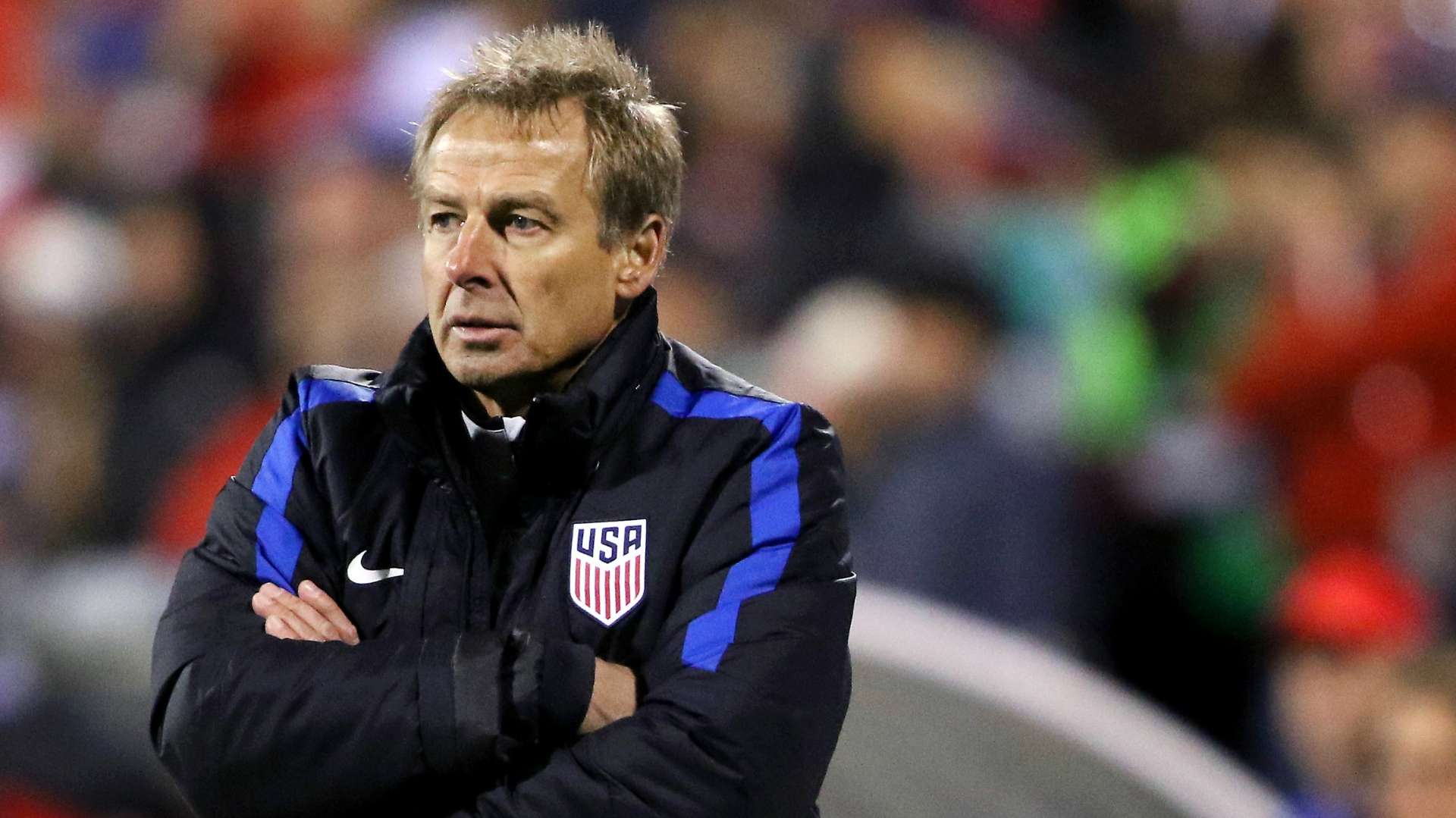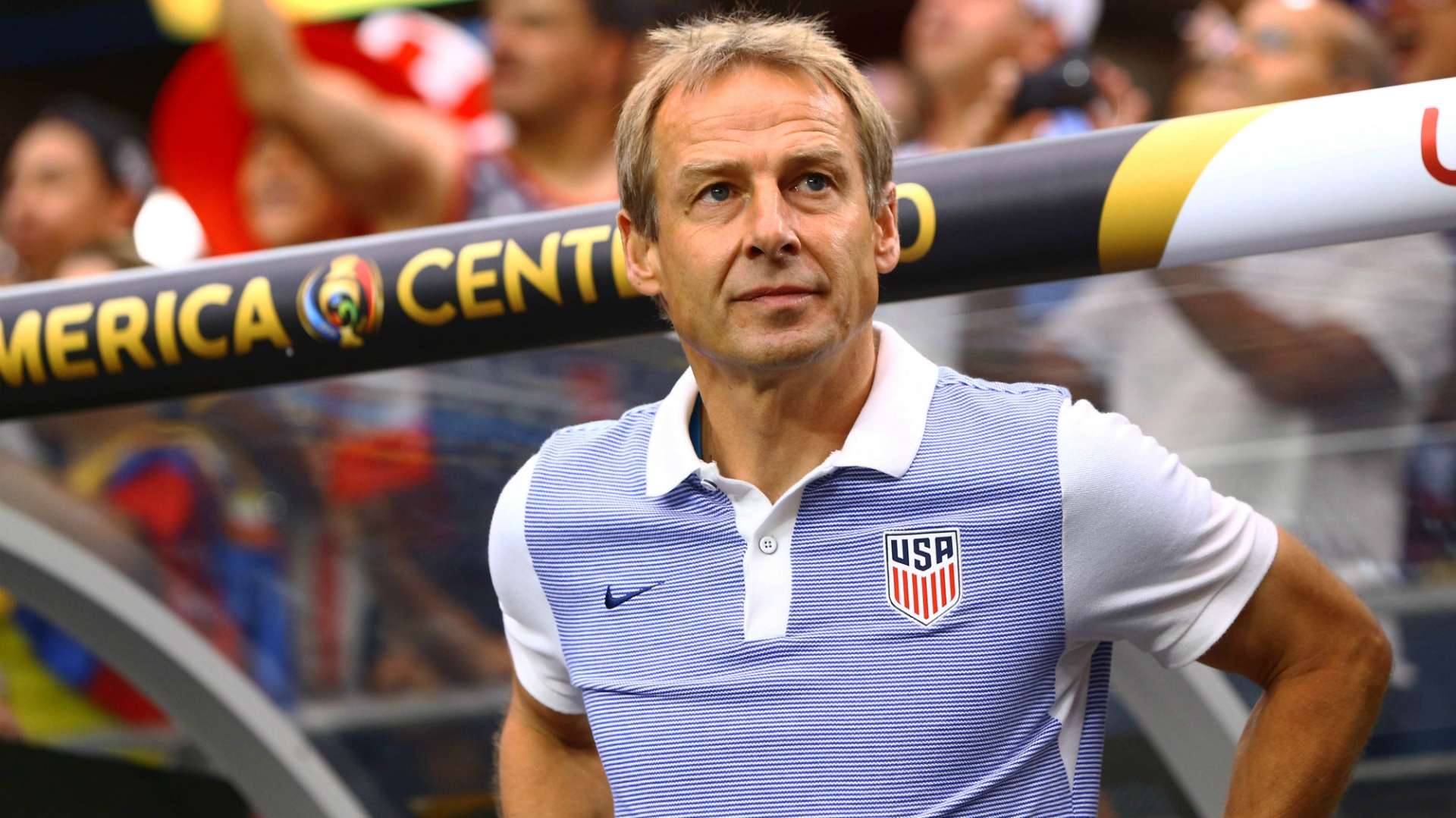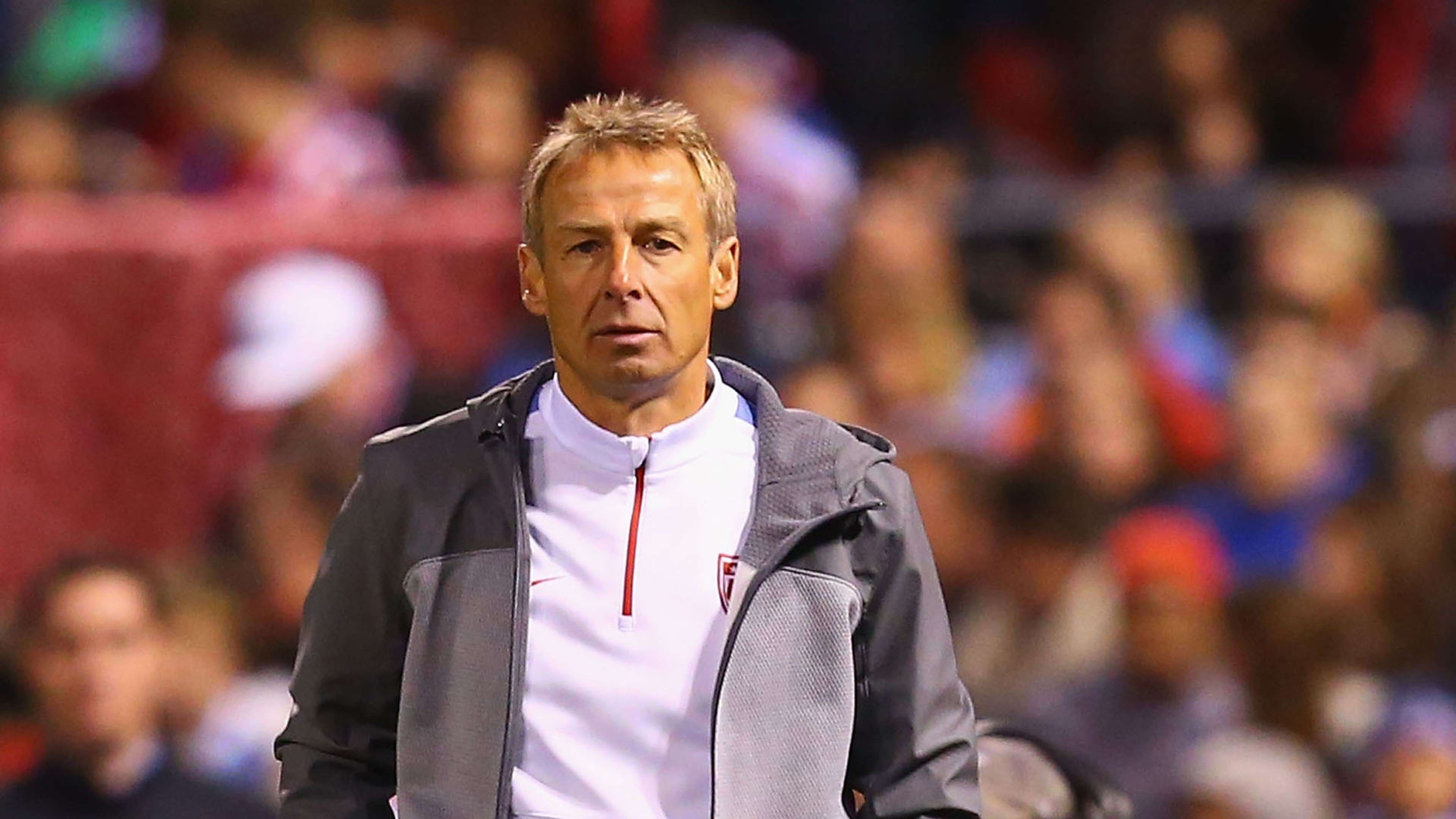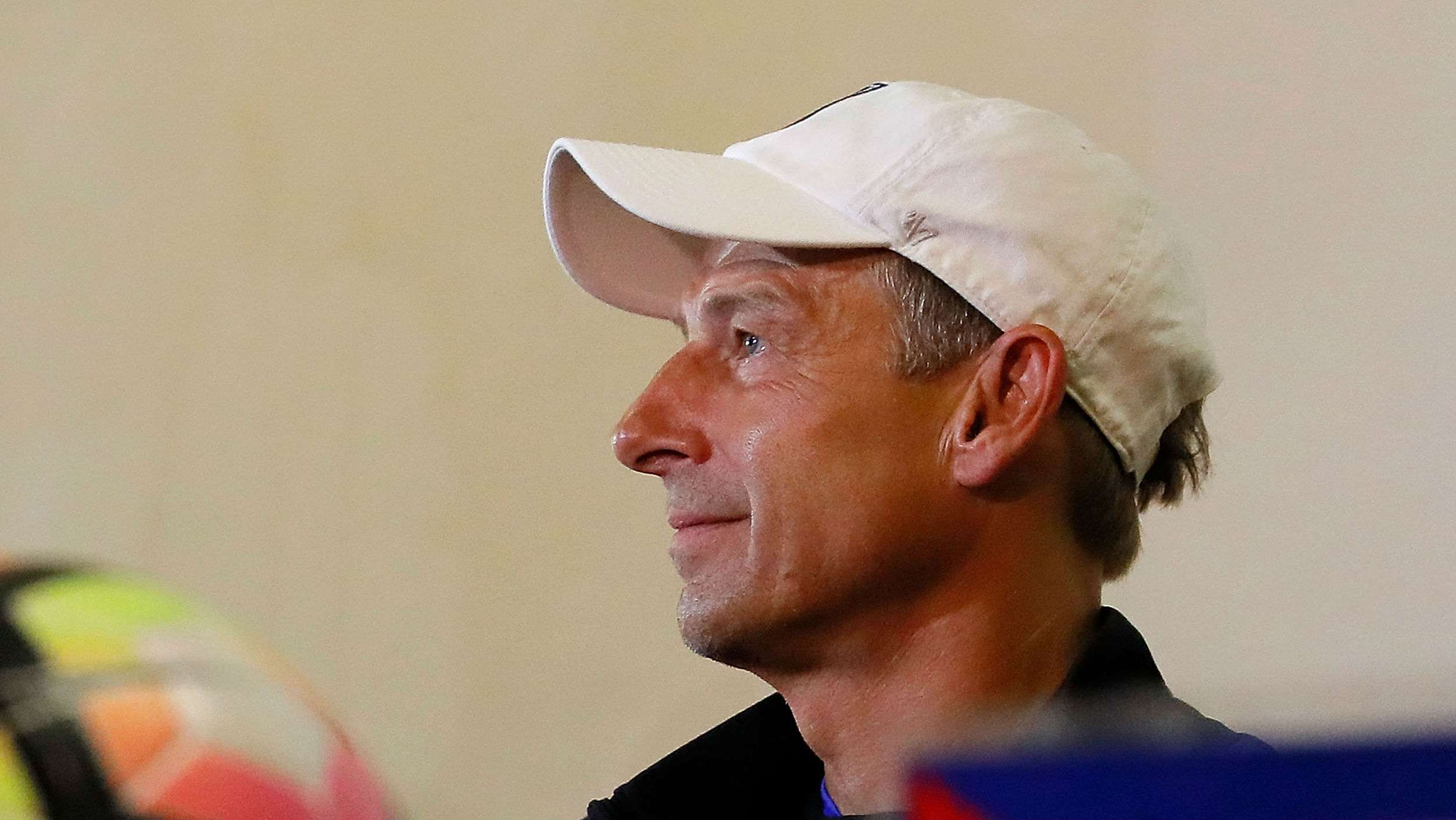Five years. That's how long Sunil Gulati yearned for Jurgen Klinsmann to be his head coach and the man to steer U.S. Soccer to a new level as a program. He watched the charismatic Germany boss implement changes in the structure of German soccer that helped the nation return to powerhouse status after some uncertain years. Gulati convinced himself that, given the freedom and patience to revamp U.S. Soccer, Klinsmann might even do a better job than he did with Germany.
Source: Bruce Arena to be named U.S. coach
Not only did Klinsmann do a worse job with the U.S. than he did with Germany, it can be argued that the U.S. team he was fired as coach from on Monday is in worse shape than the team he inherited in the summer of 2011.
Perhaps it's fitting that after a five-year courtship of Klinsmannn, Gulati finally pulled the plug on the grand project he sank millions of dollars into after five years of hoping his plan would bear fruit. It never quite did though. There were fleeting moments of promise, but not really any more than we had seen under previous coaches. There was no earth-moving change in American soccer's player development structure despite Klinsmann also having been given the title of technical director.
Instead, there were ups and downs, and unpredictable results. Klinsmann was hired with a long-term view, but the minimum expectation was that he would be able to maintain the program's previous level. The team lost that. Instead of being a force in CONCACAF that could be expected to beat all comers, the U.S. is now just another team in the region, arguably the third-best nation in the region behind Mexico and Costa Rica.
The fourth-place finish at the 2015 Gold Cup was a clear sign that Klinsmann may not be the right man for the job, especially after most of the time after the 2014 World Cup was spent recording thoroughly disappointing results. The CONCACAF Cup loss to Mexico a year ago, and missed opportunity to play in the Confederations Cup, should have been seen as a sign that the program had regressed, but Gulati pressed on and Klinsmann continued to master the art of making excuses.
Klinsmann was a fan of the excuse that his team almost won, and played better than the result showed. He parlayed these notions into a misleading narrative of a team on the cusp of something special. It was a neat trick. Play up the triumphs and soft-sell the failures as near-victories rather than what they actually were. After all, Klinsmann is the man who will have you believe his U.S. team wasn't dominated by Belgium at the World Cup.
The team's fourth-place finish at the Copa America looked like it might just be what Klinsmann needed to ensure that he would keep his job through the 2018 World Cup. Few saw the Americans reaching the semifinals, so when a surprise first-place finish in the group stage set up a winnable quarterfinal against Ecuador, Klinsmann had another accomplishment to go with a Round of 16 finish at the World Cup. How you saw those two results was always going to color how anyone would judge Klinsmann's tenure. If you believed Klinsmann, the 2014 World Cup and 2016 Copa America were clear signs of a program heading in the right direction and gaining ground on the world's elite, even if slowly.
Unfortunately, buying that meant ignoring the growing number of inexpicable defeats in places the U.S. just isn't used to losing in. Places like Guatemala, Jamaica, and against El Tri in Columbus, Ohio. As those kind of losses kept mounting, Klinsmann's excuses about bad luck and tough breaks began to ring more and more hollow.
 Joseph Maiorana
Joseph Maiorana
 Mark J. Rebilas
Mark J. Rebilas
 Getty Images
Getty Images
One thing Klinsmann never did during his time as U.S. coach is accept blame. Every loss was either bad luck or the fault of players he had no problem naming. He never took the blame for starting the wrong players, calling up the wrong players or being outcoached, which is something we saw more and more in recent years. It was always much easier to pass the buck, and for those who couldn't see things as he did, it became even easier to chalk that up to Americans not being sophisticated enough to understand just what he was doing.
Klinsmann dropped that popular line one more time in a New York Times interview on Sunday, insisting that people who felt he should be fired either were being emotional, or didn't know the sport.
"What you need to do is stick to the facts. Soccer is emotional, and a lot of people make conclusions without knowing anything about the inside of the team or the sport," Klinsmann told the New York Times. "I still believe we will get the points we need to qualify, and I am even confident we could win the group.
"The fact is, we lost two games," Klinsmann added. "There is a lot of talk from people who don’t understand soccer or the team.”
What's interesting about Klinsmann's charge is that he himself has been accused of not understanding the sport on a deep enough level technically to be an elite manager. These are claims that have dogged him since his time as Germany boss, and have continued with the U.S. He leaned heavily on assistant coach Berti Vogts for tactical support, much as he leaned on Jogi Loew when he coached Germany. The result, far too often, was a U.S. team that was struggling more and more with smaller countries, while losing the tactical battle against the likes of Mexico and Costa Rica.
This brings us to Klinsmann's replacement. Bruce Arena. To some, the appointment is seen as a step back, but the reality is the U.S. has to focus on qualifying for the World Cup and its margin of error in the Hex has disappeared after opening with a pair of losses. Gulati couldn't really afford to try and bring in a coach unfamiliar with the region or the player pool. Arena knows the region, the current player pool, and the players who could come in and help rejuvenate the team.
Arena may not be the man to build the program with an eye toward the long term, but as Gulati learned with Klinsmann, finding a visionary with the coaching chops to maintain present-day success with future-securing growth is much easier said than done. Perhaps Gulati will have another chance eventually to find such a coach, but for now he needs to bring back Arena to help U.S. Soccer avoid the unacceptable disaster of missing the World Cup.




